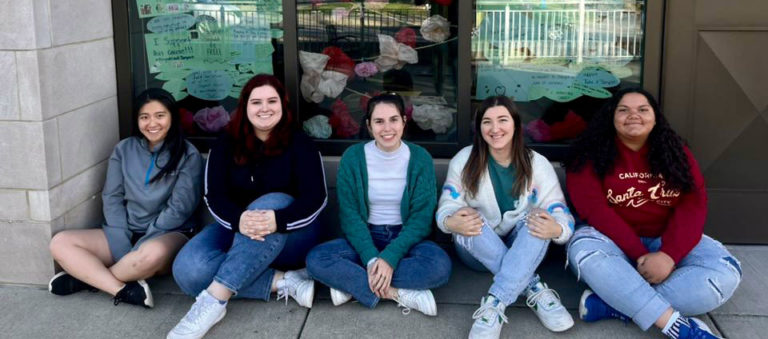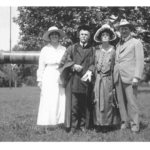This article was originally published by UKNow.
The following op-ed about the student-run organization Take a Tampon is part of a series during Inclusive Excellence Awareness Month, highlighting the voices around campus that make this university special. Kotomi Yokokura is a Chellgren Fellow and a student in the College of Social Work at the University of Kentucky.
“Too many students have to roll up toilet paper to use in place of proper hygiene products.”
When asked about the need for free and accessible menstrual hygiene products on the University of Kentucky’s campus, this was just one of many concerns raised by students.
My journey in advocating for free and accessible menstrual hygiene products started in the spring semester of my freshman year. I had experienced a period emergency, scrambling to buy a pad from a metal dispenser on campus, only to be met with empty shelves. Like many other students, I was forced to create a makeshift pad out of wadded-up toilet paper, hoping to make it through my next hour-long lecture.
Concerningly, this event is common among those experiencing period poverty.
Period poverty is the lack of accessibility or affordability of menstrual hygiene products, education and associated facilities. As a result of this experience, individuals may resort to reusing old products and repurposing rags or cardboard in place of proper menstrual hygiene products. However, this ingenuity can lead to negative mental and physical health consequences, ranging from Toxic Shock Syndrome and infections to increased rates of depression and anxiety. Period poverty can also bleed into one’s academic achievement, with 84% of U.S. teens reporting that they have missed class or know someone who has missed class due to the lack of menstrual hygiene products.
After learning about the prevalence and effects of period poverty, I started Take a Tampon, an initiative to provide free and accessible menstrual hygiene products to students and our greater community. This initiative, which began with a couple of rogue baskets around campus stocked with donations from friends and family, grew as messages of student support and need flowed in. Currently, Take a Tampon has five basket locations across campus and has provided over 1,000 menstrual hygiene products to UK students.
However, period poverty does not just affect students at the university. Conversations with Kentucky teachers and school social workers all ended with a common concern: students throughout our state face barriers to accessing menstrual hygiene products and education. As a result, Take a Tampon provides menstrual education to local high school students and advocates for state legislation addressing experiences of period poverty. In the past couple of years, I have met with Kentucky representatives and senators to advocate for free and accessible menstrual hygiene products in K-12 public schools and the removal of the pink tax.
As the end of the semester is approaching, Take a Tampon is holding a donation drive for menstrual hygiene products. Donated menstrual hygiene products will help increase the basket locations at UK and provide products to high school students at the Family Care Center. Donations will be collected until April 28 on the 6th floor of the Patterson Office Tower and in the Lewis Honors Lounge in the Lewis Honors College. If you wish to donate outside of those times, please visit https://tatampon.wixsite.com/website/donations.






